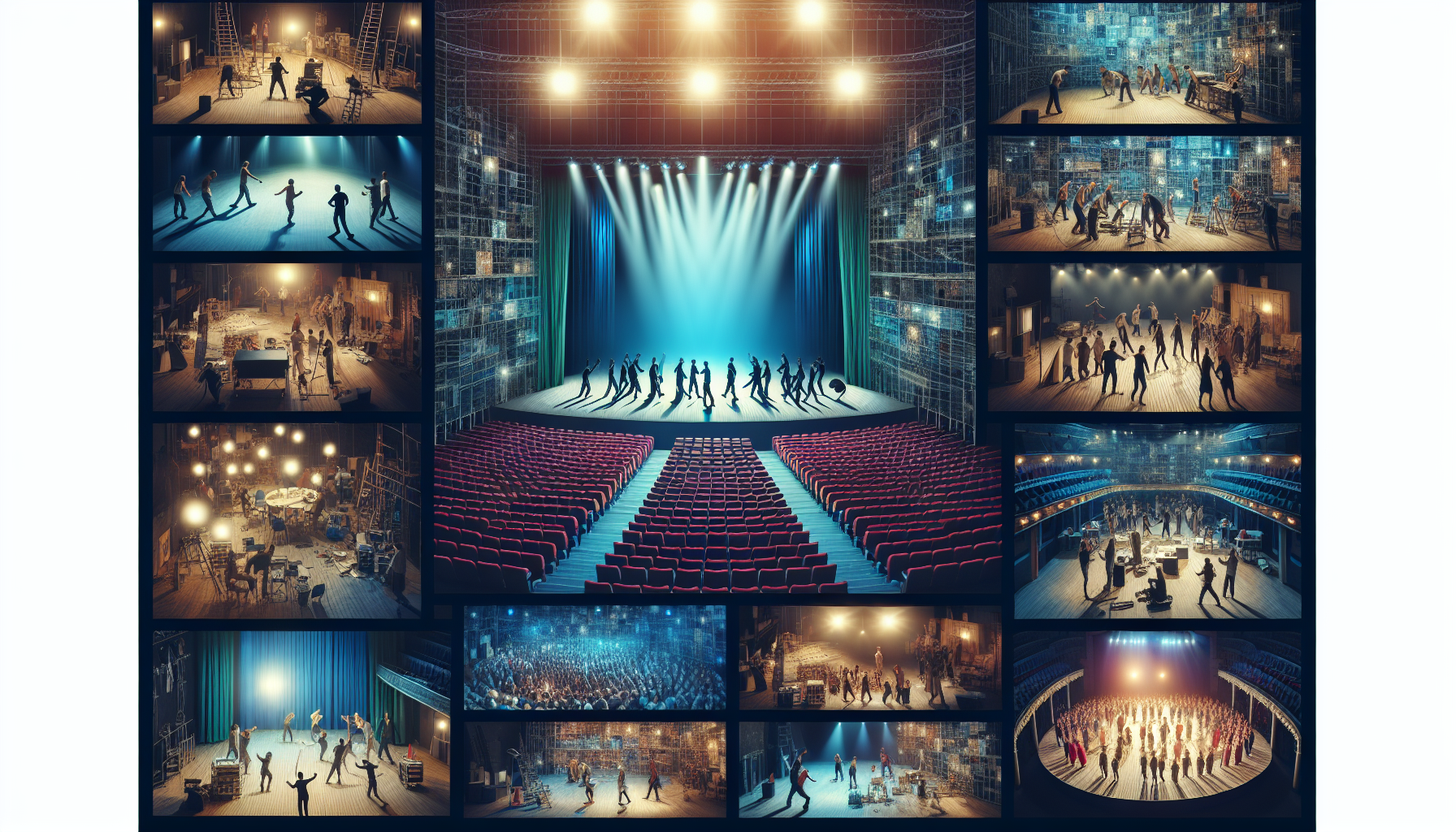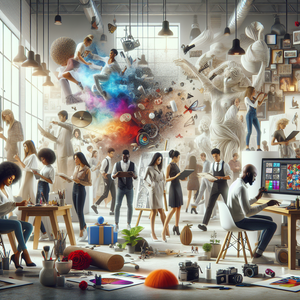The Art of the DJ: Crafting a Sonic Experience

At its core, DJing is about creating a sonic experience that resonates with listeners, transforming a collection of sounds into an emotional journey. A DJ's role extends beyond simply pressing play; it requires an acute awareness of the crowd's energy and the ability to adapt the music to match that energy. A skilled DJ employs a variety of techniques, including beatmatching, blending tracks, and using effects to enhance transitions, ensuring that each performance is a unique and engaging experience.
Creative Curation
One of the most captivating aspects of DJing is the art of creative curation. DJs invest countless hours selecting tracks that not only fit a particular theme or mood but also flow seamlessly into one another. This process can be likened to that of a filmmaker editing a movie; each song acts as a scene, and the transitions create a cohesive narrative. For instance, a DJ might begin a set with deep house tracks to create a relaxed atmosphere, gradually transitioning to high-energy anthems that ignite the dance floor. This intentional progression ensures that every moment feels deliberate, drawing the audience deeper into the experience.
Technical Skills
While creativity is paramount, a successful DJ must also possess strong technical skills. Proficiency in using DJ software and hardware is crucial for crafting unique mixes in real-time. Many DJs utilize digital audio workstations (DAWs) and controllers to manipulate sound, enabling them to create performances that are distinctive and engaging. Furthermore, a solid understanding of sound engineering principles—such as frequency ranges and audio mixing—allows DJs to deliver high-quality performances that captivate audiences with their sonic richness.
Reading the Crowd
One of the most elusive skills that distinguishes a good DJ from a great one is the ability to read a crowd. This involves not only observing the audience's energy levels but also making split-second decisions about which track to play next. A great DJ can sense when the crowd's interest is waning and quickly respond by switching genres or introducing a familiar hit that reignites excitement. This intuitive connection between the DJ and the audience transforms live performances into dynamic, memorable experiences.
Opportunities in the Music Industry
The diverse skill set developed through DJing can open doors to various career opportunities within the music and entertainment industries. Here are a few potential paths that leverage the unique abilities of a DJ: 1. Music Production: Many successful DJs transition into music production, where they create original tracks and remixes. Their experience in curating sounds and understanding audience preferences provides them with a distinct advantage in the studio. 2. Sound Engineering: DJs with a solid grasp of sound technology can find rewarding roles in sound engineering. Collaborating closely with artists, they ensure that music is polished and professionally mixed. 3. Event Management: With extensive networks and a deep understanding of the music scene, DJs can pivot to event management, organizing and curating music events or festivals. Their live performance experience equips them with the skills necessary to coordinate logistics and manage talent effectively. 4. Music Marketing and Promotion: DJs often have a nuanced understanding of branding and audience engagement, making them ideal candidates for roles in music marketing. They can leverage their unique perspective on fan engagement to help promote artists and events through social media and other channels.
The art of DJing is a rich and multifaceted discipline that transcends the mere act of playing records. It involves a harmonious blend of creativity, technical skills, and a keen awareness of audience dynamics, all of which contribute to crafting an unforgettable sonic experience. As the music industry continues to evolve, the skills honed through DJing will remain invaluable, paving the way for diverse career opportunities. Whether through music production, sound engineering, or event management, the journey of a DJ is just the beginning of a vibrant and fulfilling career in the entertainment landscape.
Music Producer
Major record labels, independent music studios, and freelance opportunities
Core Responsibilities
Create original music tracks and remixes, collaborating with artists to shape their sound.
Oversee recording sessions, guiding artists in vocal performance and instrumentation.
Manage the mixing and mastering process to ensure high-quality final products.
Required Skills
Proficiency in digital audio workstations (DAWs) like Ableton Live or Logic Pro.
Strong understanding of music theory and composition techniques.
Excellent communication skills for effective collaboration with artists and sound engineers.
Sound Engineer
Concert venues, recording studios, and broadcasting companies
Core Responsibilities
Set up and operate audio equipment for live events and studio recordings.
Mix and edit audio tracks, ensuring clarity and balance for final productions.
Troubleshoot technical issues during performances to maintain sound quality.
Required Skills
Knowledge of sound mixing consoles and audio processing software.
Experience with live sound reinforcement techniques and studio recording practices.
Attention to detail and strong problem-solving abilities.
Event Coordinator for Music Festivals
Event management companies, music festivals, and concert promoters
Core Responsibilities
Plan and execute music events and festivals, managing logistics from start to finish.
Coordinate artist bookings, stage setups, and vendor contracts.
Develop marketing strategies to promote events and attract attendees.
Required Skills
Strong organizational skills and ability to manage multiple projects simultaneously.
Networking skills to build relationships with artists, vendors, and sponsors.
Knowledge of event management software and tools.
Music Marketer
Music labels, marketing agencies, and independent artists
Core Responsibilities
Develop and implement marketing campaigns to promote artists and music events.
Utilize social media platforms to engage with audiences and increase brand visibility.
Analyze market trends and audience data to refine marketing strategies.
Required Skills
Proficiency in digital marketing tools and analytics platforms.
Strong writing and communication skills for creating promotional content.
Creative thinking to develop innovative marketing approaches.
DJ Software Developer
Software companies specializing in music technology, startups, and freelance development opportunities
Core Responsibilities
Design and develop software applications for DJing, enhancing user experience and functionality.
Collaborate with DJs to understand their needs and implement features that improve performance.
Test and debug software to ensure reliability and quality.
Required Skills
Proficiency in programming languages such as Python, Java, or C++.
Understanding of audio processing and music technology.
Experience with user interface design and user experience principles.


